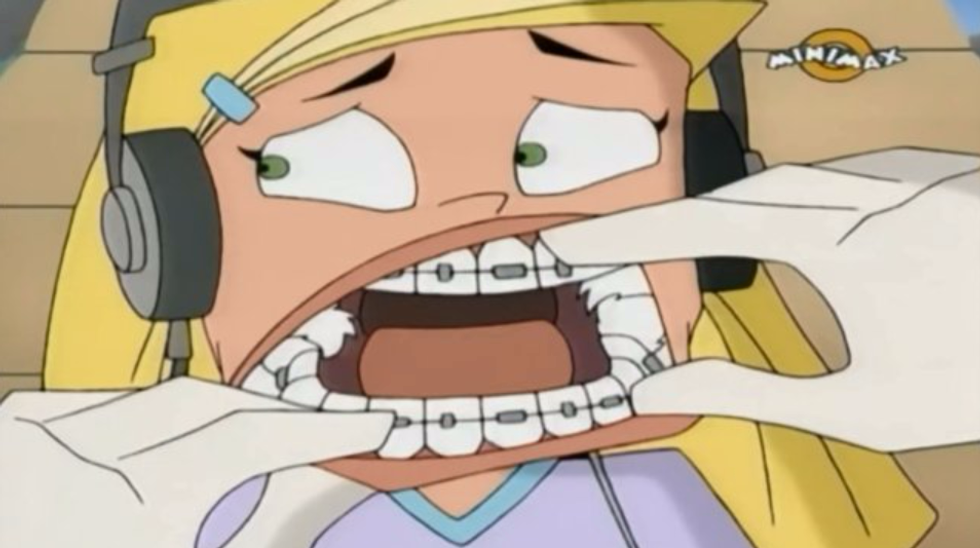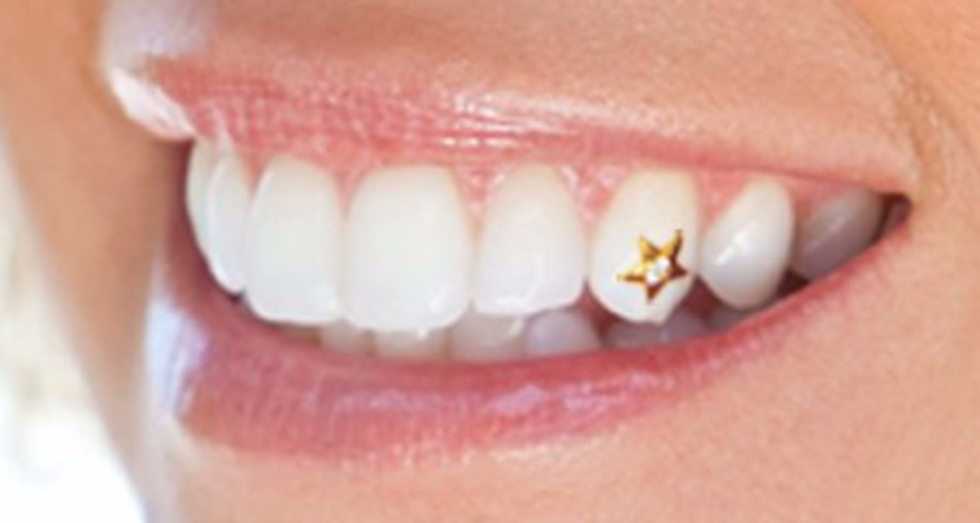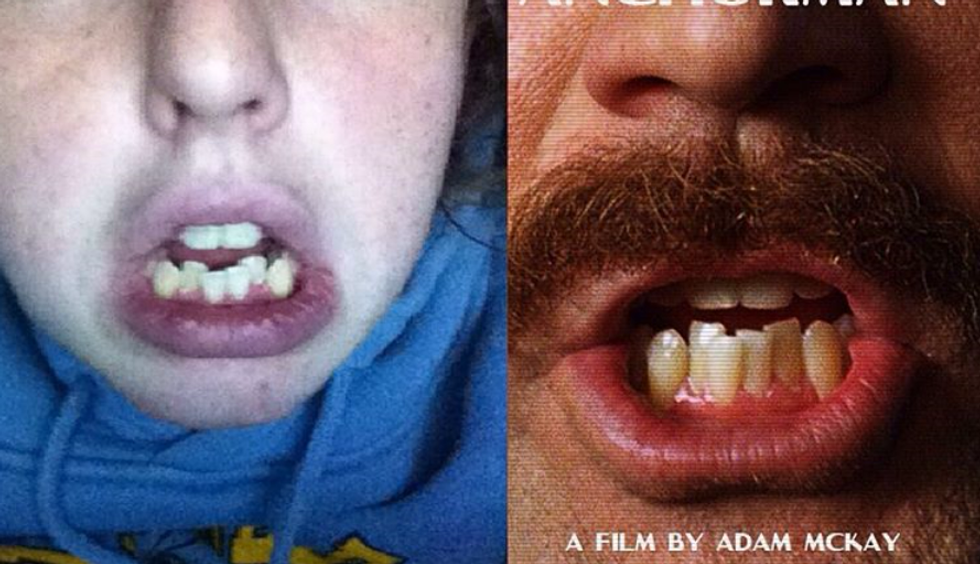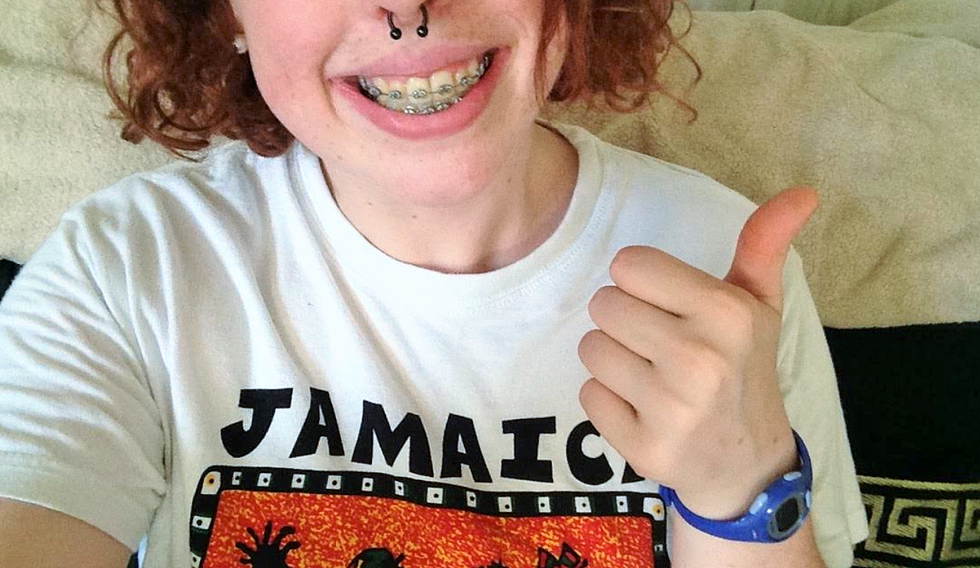Experiment B
I was twelve the first time I had braces. I was more ecstatic than most are when they find out that they’ll be stuck with metal in their mouth for the foreseeable future; puberty was well on its way and self image was something I started to care about. I was told by my closest friend, “Audree, you’re really pretty, but... your teeth really need work” Harsh, yes, but it was an undeniable fact that my teeth were super messed up.
Perhaps I was so optimistic because of the TV show "Braceface."
OK, maybe not. More realistically, I was just excited to have straight teeth and escape the possibility of being called snaggletooth forever.
Fast forward three years. That’s approximately 1100 days of teeth jewelry
(Pro-tip: To avoid losing jewelry, adhere to teeth.)
I got my braces off and it was wonderful. Total freedom, wonderfully straight teeth, fashion, fame, and fortune. This period of glamour lasted about two months until I went away for a hockey tournament, left my retainer at home, and by the time I got home my retainer did not fit. Three years of braces for nothing. It turns out, for those of you blissfully unaware of the woes of crooked teeth, that teeth are easily shifted within the first six months after removal of braces, and if you have impacted wisdom teeth, as I did, your teeth are just itching to move.
The Experiment:
Once I got to college I became more and more aware of how others saw my crooked teeth. I have always brushed off my insecurities with jokes, so I adopted a faux confidence surrounding my crooked teeth, lovingly comparing my crowded bottom teeth to Will Ferrell’s.
Last December, I decided to get braces again. I figured that I could be an adult with braces for a few months or an adult with crooked teeth for my whole life, and the former seemed like the better deal. I wasn’t sure quite how this would go over but, being a scientist, I welcomed this as a social experiment of sorts. How would my metal-mouthed appearance affect how others interacted with me? I predicted minimal changes in social interactions — slightly fewer tinder matches, semi-frequent jabs at my braces, an increase in food-stuck-between-teeth embarrassment — but nothing quite like what I have experienced in the four months that this “experiment” has gone on.
Experimental Results:
The first thing I have noticed since getting braces is that people appreciate the long-term commitment to overall health and appearance that braces entail. While my closest friends joked with me about the new metal additions to my teeth, they were the minority. An overwhelming amount of people, whether strangers or acquaintances or family, offered their support and commended me for valuing my dental hygiene. These people had some idea of the financial and physical commitment I made, and they chose to be my cheerleaders.
This support could be due in part to the fact that a lot of people have had some sort of braces, Invisalign, or other such orthodontic device. According to the American Association of Orthodontics, about 33 percent of the world’s population has had some sort of orthodontic treatment to straighten their teeth, and currently, an estimated four million people in the U.S. are undergoing such treatment. There’s a whole lot of empathy going around for people with braces because so many individuals have experienced it themselves. In fact, I don’t know about you, but I know far fewer people who have not had braces or something of the sort than those who have.
Because there is a visible reason many people can relate to me, it seems that strangers are more willing to strike up a conversation. In general, most people keep to themselves in public, with the occasional opening of doors or lending a quick helping hand. Since I got braces, however, the amount of conversations I’ve had with strangers has increased. The topics are not always about my braces, but for the most part that is the jumping-off point. Is it causality or correlation? Am I more friendly appearing because people see that I have braces, or have I actually become more approachable since getting braces? Who knows, but the difference is noticeable.
This is not to say that I haven’t been teased. The thing about it is to remember that the people who will make fun of you for having braces, would make fun of you for something else if you didn't have braces. I was so worried at first about being made fun of, but when I was finally teased, I wasn't even phased by the insults. Those who will put you down for trying to better yourself are not the people whose opinions you should value. Ignore these people. Their insults or jokes are said for the sole purpose of bringing you down.
Like I predicted at the start, I did experience a change in my social interactions; however, it turns out that my fear of being judged for my adult brace face was unnecessary. Overall, I observed that those around me are more likely than not to support me and my journey to better dental health, and that is way more important than the straight teeth I will have at the end of treatment.



























